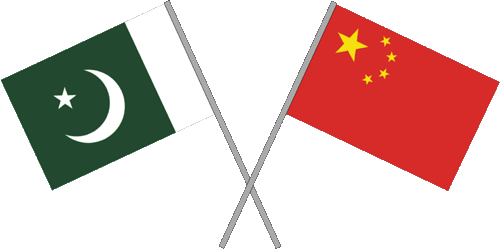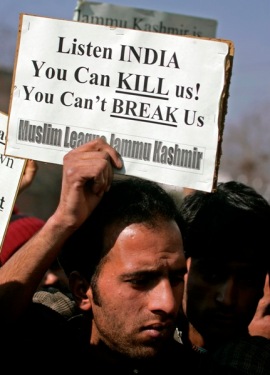Double standards in nuke cooperation
July 19, 2010 Leave a comment
The civil nuclear cooperation agreement between Pakistan and Chinese companies has attracted wide attention, with some countries even questioning the legality of the deal.
The pact is however a routine development and is a sign of pragmatic cooperation that will in fact be closely supervised by the concerned international authorities.
The strategic cooperative endeavor is not intended at targeting any third party. China has been an important source of assistance to Pakistan in several fields and this cooperation is the result of comprehensive bilateral strategic relations based on mutual trust.
Energy shortage has restricted economic development in Pakistan. Building nuclear power stations is an important solution to this problem.
The first and second stage of construction of the Chashma Nuclear Power Station has already been completed due to this bilateral cooperation initiative.
Civil nuclear cooperation is the fruit of deepening bilateral ties and is not only a win-win choice for both nations but also contributes to the stability and prosperity of South Asia.
Chinese companies’ involvement in civil nuclear projects is a routine economic activity. The overall installed capacity of civil nuclear power in Pakistan will increase several-fold in the next decade, turning Pakistan into an important market for international nuclear power service suppliers.
In this context, China National Nuclear Corporation’s (CNNC) construction of two new nuclear reactors for Pakistan, which is being closely supervised by the International Atomic Energy Agency (IAEA), should be deemed normal entrepreneurial behavior that does not breach China’s promise of nuclear non-proliferation as a member of the Nuclear Suppliers Group (NSG).
In fact, the US has already started talks with Pakistan about civil nuclear cooperation. Due to domestic political compulsions, the nuclear tycoons of the West cannot compete in Pakistan’s nuclear reactors market. This should not, however, be made into an excuse to stop other nations’ companies from initiating routine nuclear cooperation with Pakistan.
It is illogical to approach the civil nuclear cooperation agreement between China and Pakistan using double standards. To some extent, similar cooperation – between the US and India – has provided China and Pakistan with a practical model.
After signing a nuclear cooperation agreement with the US in 2006, India became free to accept civil nuclear fuel and core technologies from the US – as long as it separated its civil nuclear facilities from military ones – even though the country hadn’t signed the Nuclear Non-proliferation Treaty.
The IAEA council agreed to provide supervision guarantees to India after the US and India lobbied widely for the same in 2008. Forty-five members of the NSG reached agreement to lift restrictions on nuclear export to India later in the same year, after which the India-US cooperation entered a crucial stage. The US has reportedly sold nuclear material to India ever since, while Russia is helping India build more than 10 reactors.
Since it initiated large-scale nuclear cooperation with the US and Russia, it is groundless for India to complain about similar cooperation – on a much smaller scale – between Pakistan and China. It is India and the US that has opened the so-called nuclear Pandora’s box.
Their cooperation has, in some degree, removed obstacles for the Sino-Pakistan pact. Anybody nodding to the US and India has no reason to dissent to China and Pakistan now. The international community should abandon its ideological prejudice towards China and Pakistan.
Some Westerners think the civil nuclear cooperation between India and the US will certainly help improve the lives of ordinary Indian citizens simply because of their shared identity as free democratic countries.
In contrast, the deal between China and Pakistan, so-called non-democracies, must be evil and threatening, they aver. These double standards are a typical legacy of the Cold War era power politics. Any conclusion drawn from such a mentality deserves second thought.
China is firmly against nuclear proliferation and nuclear arms race. Together with the US, China had condemned the nuclear tests conducted by both India and Pakistan in 1998 and voted to support sanctions on both countries in the United Nations Security Council.
Furthermore, China also approved the sanctions resolution against Iran this year. The nation’s steadfast determination to nuclear non-proliferation does not necessarily mean it will yield to pressure from other countries at the cost of its own national interests.
Setting aside the attitudes of other nations, China, as a responsible player in the world, will further its civil nuclear cooperation with Pakistan, according to existing international mechanisms and in the furtherance of its core national interests.
The author is an assistant researcher at the China Institutes of Contemporary International Relations.














































Recent Comments